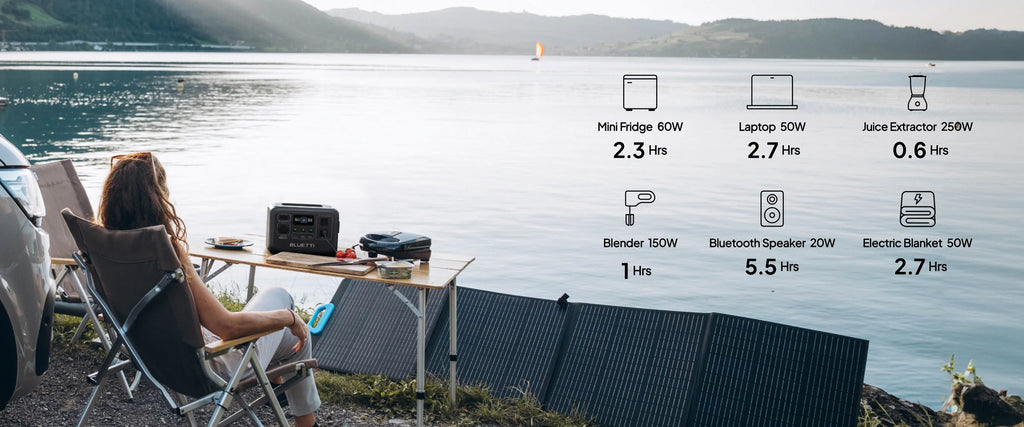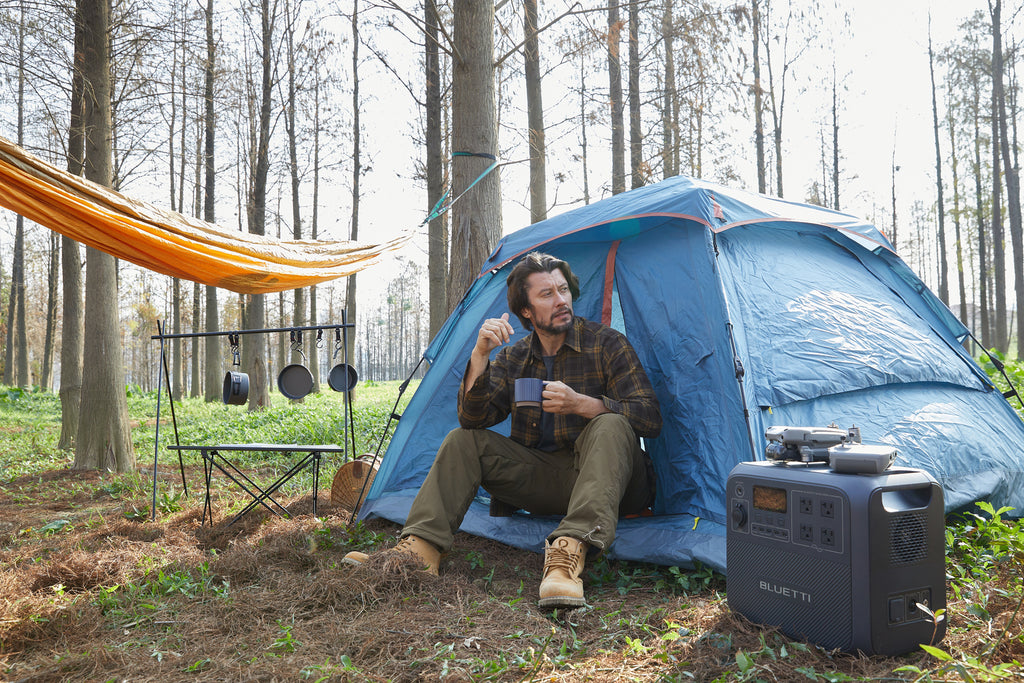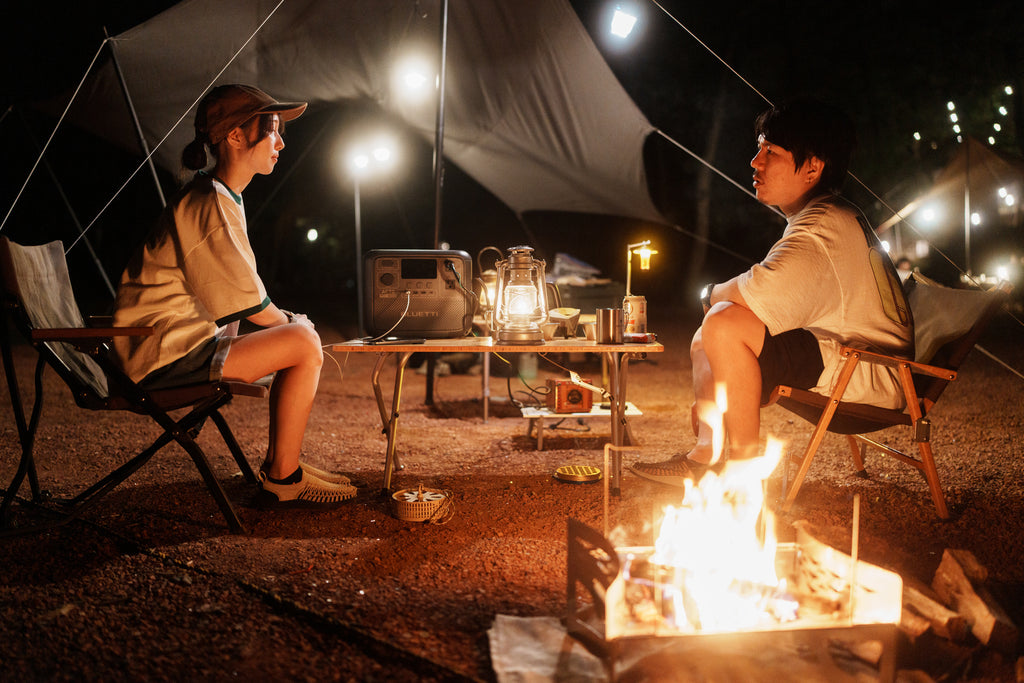Blessed with natural beauty, Canada will show diversity in landscapes from coast to coast and in wildlife. If you are a fan of mountains, forests, lakes, or the prairies, Canada will provide an ideal camping site for the best way to experience the great outdoors. There are plenty of public lands and privately owned campgrounds, in addition to national, provincial, and territorial parks.
But what if you are one of those enthusiastic campers who want to camp out for free? Is there really any legal and safe place for camping where you may not pay anything at all? Yes, there is, but you have to find it and prepare yourself the right way. We've prepared this article to guide you through the most popular ways and applications on how to find free camping and boondocking spots in Canada, including all the important things you must know before heading out on a road adventure.
Where to Find Free Camping in Canada
The country is considered a gold mine for those in love with camping, since they can bask in the glory of natural beauty here without shelling out even a single penny from their pockets. From crown land to recreational sites and municipal campgrounds to others, lots of free-of-cost camping locations exist in Canada. This section is going to show you where to find them.
Just bear in mind that free camping also lets you indulge in various activities outside Canada: from star-watching to canoeing, wildlife watching, hiking, or fishing; you name it!
Crown land

Crown land constitutes 87% of the area's total land owned by the Canadian monarch and is under government management. This land is an ideal public land for free camping in Canada, as there is permission from the government for public usage of land for free camping, recreation, tourism, and economic development.
Canadian citizens have the right to camp on crown land for not more than 21 days in one year. In this case, residents should adhere to the applied rules of the province/territory where the location of the land is at. Others may charge non-residents for a camping permit. For example, in Ontario, to camp on crown land north of the French and Mattawa rivers, non-residents are being charged with $9.35 + tax per person for every night stayed.
Besides, when a person is in need to find a crown land for the purpose of camping legally and safely, then they will refer to an official map of the province or territory, which shows land use policies and restrictions, as mentioned above. For example, in Ontario, use the Crown Land Use Policy Atlas. In British Columbia, use FrontCounter BC Discovery Tool. In Alberta, use the Public Land Use Zones map.
One more way of finding free spots for camping on the crown land is purchasing a Backroad Mapbook of the area you are heading towards. These show where established campsites on crown land are located and will be of great value for any outdoor enthusiast. The only exception is the Yukon Territory, which is not covered by Backroads but instead will be referred to by Milepost—a travel guide that states the camping options pertaining to the highways in Yukon and Alaska.
Recreational Sites in British Columbia
The camping in British Columbia (BC) is among the top-rated destinations in Canada for those interested in free camping, in that BC has one of the largest networks of Recreational Sites. The sites are found adjacent to water bodies; they can be reached by the use of logging roads and contain quite primitive facilities for camping. There are large-sized and highly structured campgrounds. There are also small and intimate-sized campsites. Some of them charge just a nominal fee of about $10-15 per night, while most of them are absolutely free and open to the public with a maximum stay limit of 14 days.
To identify these free campsites in BC, one is advised to visit the website of Trails and Sites for complete site descriptions, including geographical coordinates, or refer to Backroad Mapbooks for more detailed help with navigation.
Provincial/Territorial Parks and other protected areas
One of the better places in the world for free camping is Canada's extensive backcountry, protected by national and provincial parks. However, in the indicated places, this is paid, usually in the range of $10-40 per day of stay, depending on the area. There are also provincial parks where a fee for admission is charged.
Free camping happens mostly in the backcountry, accessed by foot or canoe, where one should be using camping and hiking gear. While some of the more popular trails are fee-based and require reservations, many do not. Consider off-season visits. Famous areas include Valhalla Provincial Park in British Columbia, Tombstone Territorial Park in Yukon, and 100 Wild Islands in Nova Scotia.
Municipal campgrounds
Some of the municipal campgrounds in Vulcan, Alberta, are affording a rare chance of camping free of charge. The campground gives room for ten spots that will be camped in for at most three nights. Thereafter, the occupier is to part with $10 for each night of extra stay. It has washrooms, tap water, garbage disposal, and a picnic shelter. The operation of the campsite is from May to September.
Where to find overnight free camping in Canada
Vehicle travelers are accommodated for short periods with free overnight camping in Canada. Rest stops provided along the highway have varied facilities, and stays are most common for six or eight hours. ruck stops are larger than rest stops and provide travelers with such facilities as washrooms and dining. Walmart parking lots are always on the list of free overnight parking, but not every site is ready to provide such an opportunity.
Other private businesses can be Real Canadian Superstores, allowing travelers to park overnight on their premises. Visitor Information Centres may also provide free water fill-ups, camping advice, and possibly a free stay in their parking lot.
How to find free camping in Canada
Free camping in Canada draws on a wealth of resources. Backroad Mapbooks are invaluable in providing location awareness for everything free camping, such as hiking to the location. Most important is The Milepost, which serves as a sort of Alaskan travel planner and critical resource for Northern British Columbia and the Yukon Territory, detailing every mile of the highways.
Provincial and Territorial Park websites are the first stop to look at rules and regulations. Freecampsites.net is a user-generated database that offers a blend of quality sites. Another website with a lot of users and thus recommendations is iOverlander, which presents suggested campsites and spots for water and showers.
Essential camping items
Key camping gear will include:
- A light tarp for shelter or even shade, useful in any weather.
- One will also require mosquito repellent while camping, especially during the springtime, because the bugs are really fierce.
- A good item to have is a camping stove; sometimes cooking meals over the campfire simply is not possible, due to wet firewood or bans on having a campfire.
- Next, separate lighting for the night—either a headlamp or lantern—since visibility is very low for card games or just lounging by the fire.
- A portable power station is a crucial piece of camping equipment when camping for free in Canada. It offers dependable and clean energy for your devices and appliances. Below are three options to consider:
BLUETTI AC2A Portable Power Station

It's able to supply 300W of AC output and survive surge power of 600W. It has a 204.8Wh battery capacity that can turbocharge at 270W in 45 minutes for a longer life span. Furthermore, it comes with BLUETTI APP smart remote control and can provide easy UPS functionality. It is backed by an industry-leading five-year guarantee and is sold at C$279.00.
BLUETTI AC180 Solar Portable Station

It provides an output of 1800W AC and 2700W surge from its 1152Wh capacity of the battery. It comes with nine output ports, with the possibility of running several devices at the same time. Features four flexible recharging ways, including solar that is able to fully charge in 45 minutes under the 1440W AC input. Includes smart control and monitoring functions via the BLUETTI app. The battery is environmentally friendly, quiet, and costs C$1,099.00.
BLUETTI AC70 Portable Power Station

This system can handle a constant power of 1000W and burst power of 2000W. It is fitted with a large 768Wh battery that can be juiced up within 45 minutes using turbocharging, while the solar charging takes 2 hours. It has seven outlets for all your gadgets and smart remote control through the BLUETTI app. It also features an ultrasmooth UPS function and comes with a price tag of C$749.00.
Final Thoughts
Canada offers an overabundance of free camping and boondocking opportunities, especially on Crown land, which is federally owned and absolutely free for Canadian citizens to camp for up to 21 days. Perhaps the ideal source for choosing one's exact camping site would be from the websites of provincial or territorial governments. And remember, respect the environment and leave no trace. With the given information on how to find free camping in Canada, all that remains is to just plan your trip and dive into the awesome wilds of Canada—for free.




